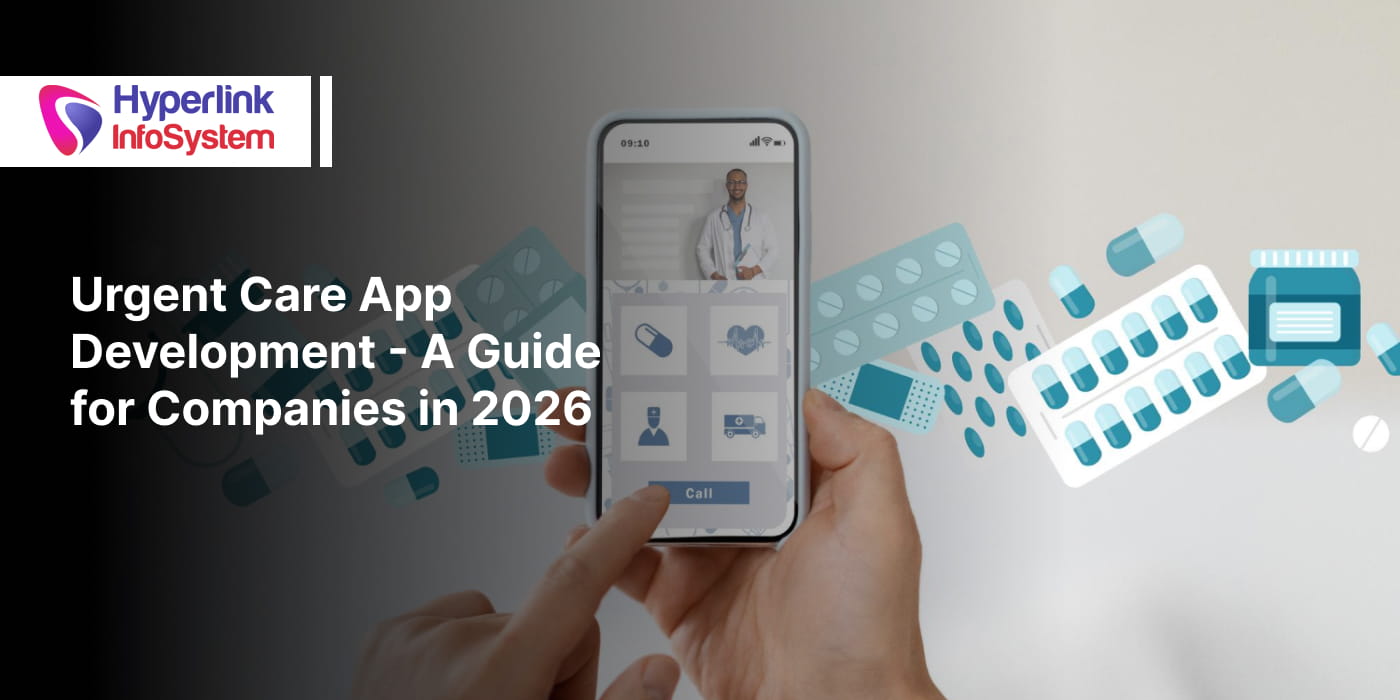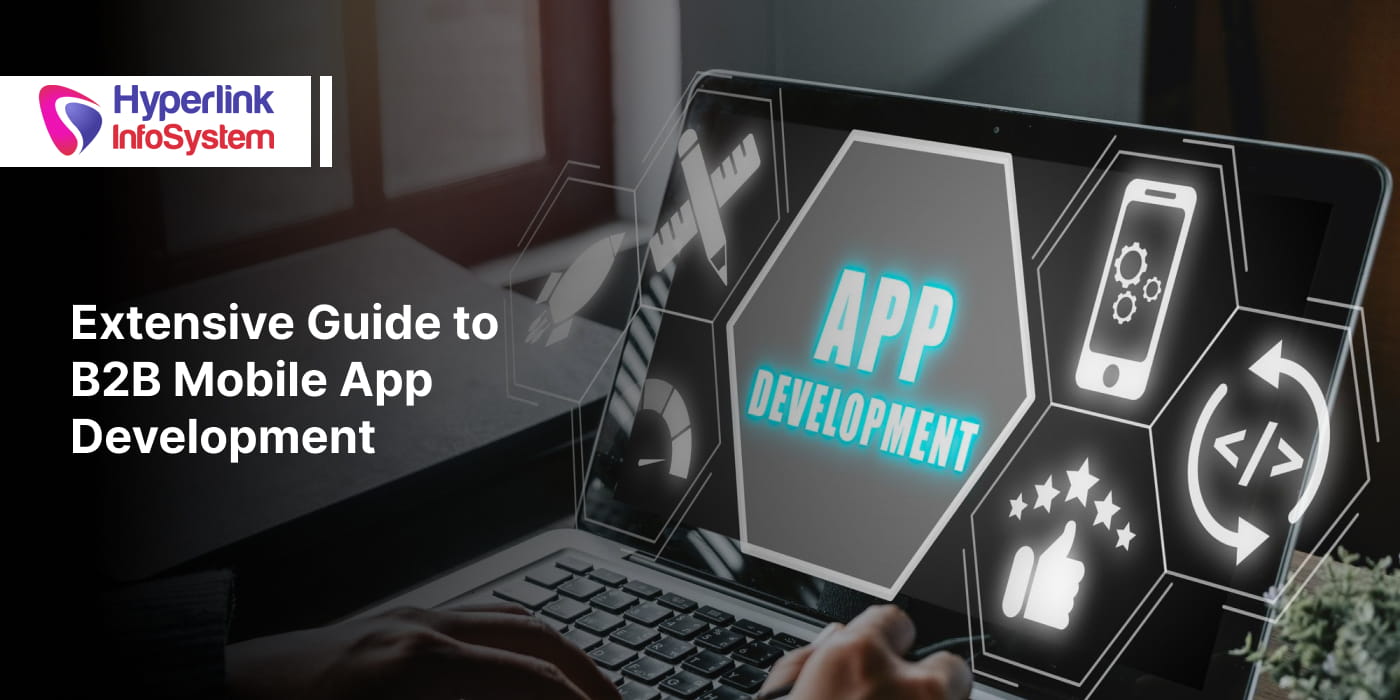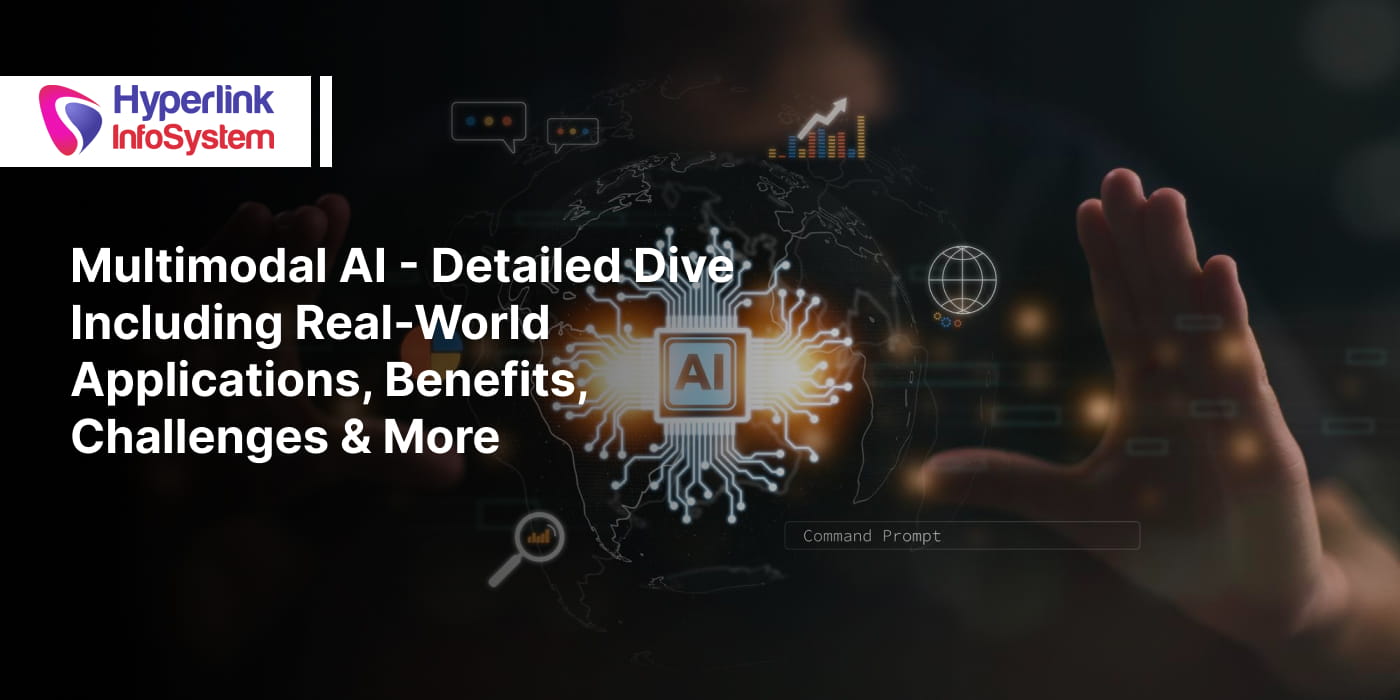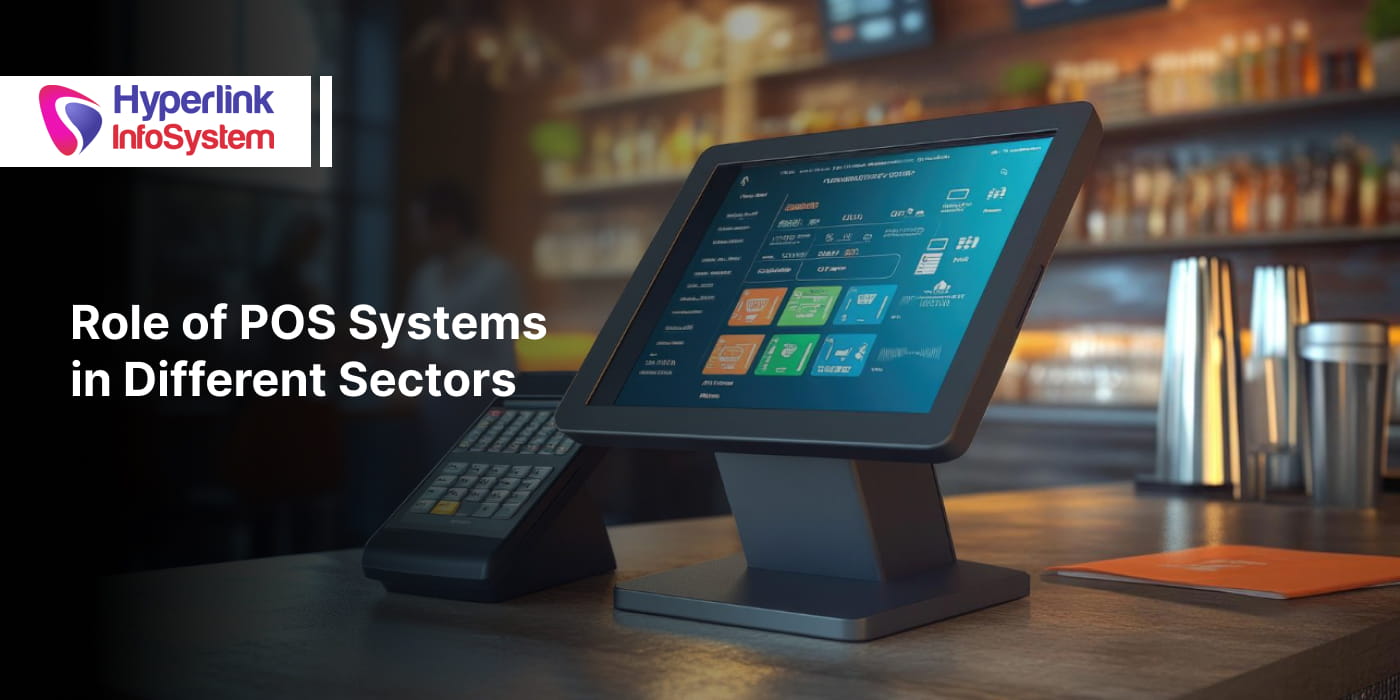Nowadays, IoT & mobile apps go together. Considering this, app developers are bringing some changes to mobile app development. Now we see that apps are more streamlined & functional than apps earlier. App users can smoothly connect to the world via smartphone & tablet as IoT begins to take off!
IoT has reshaped the face of mobile apps, and to attain the goal of making everyone's life easier, app developers have to first go through the pain of developing compatible platforms & infrastructure.
The Internet of Things is a future tech that has already become a reality. Its possibilities for agriculture, health, manufacturing, & daily life are insane than anything a sci-fi author of the previous century could have imagined. Mobile apps will be a connecting point for several IoT devices, and in this blog, we will explore how to create an IoT app for the future.
What Is IoT?
In simple words, the Internet of Things (IoT) refers to the concept of connecting gadgets with other gadgets like washing machines, AC, fan, scooter, smartphones, coffeemakers, television, etc., with a switch to one another and the internet. Basically, components such as sensors, electronic devices, and cloud computing are interconnected through a network. This is due to wireless communication that data is shared & stored on online servers.
Why Build A Custom Internet Of Things (IoT) App?
The IoT market is vast, and it has something to offer to other industries. It looks like IoT devices will soon be ubiquitous, from smart cities and agricultural fields to massive manufacturing plants and people's homes & cars.
IoT app development services are becoming more prevalent, though it might still be challenging to find good IoT developers.
In this blog, we will focus on consumer IoT because it's the area where apps will be most required. For instance, in other industries like agriculture & enterprise business, IoT gadgets may not need mobile interfaces. They can connect straight to the cloud or be controlled using web apps.
On the other hand, IoT gadgets for consumers usually use apps: people have their mobile devices in hand all the time. Smart homes are possibly the first thing that comes to mind while thinking about IoT for consumers. And smart home techs are gaining momentum each year.
Smart home devices are becoming more famous, and this tendency will possibly continue. But smart homes not only demand mobile interfaces for connecting devices. Consumers can use IoT for:
- Healthcare
- Automobiles
- Agriculture
- Child & pet care
As per IDC forecast, wearable gadget sales will rise 31% from 2016 to 2020, to a whopping 82.5 million units. The no. of installed IoT gadgets will increase even quicker and reach more than 75 billion by 2025.
IoT market growth for smart homes guarantees to be more remarkable. A survey by Forbes displays that 2/3rd of consumers say they will probably buy IoT gadgets for their homes by 2019. Only half of the respondents said they were more likely to buy wearables. By the year-end 2019, 1.9 billion smart home gadgets will be shipped to consumers, producing revenue of approximately $490 billion.
What about smart & connected cars? As per Machina Research, 90 percent of all new cars will be connected to smartphones.
The Internet of Things (IoT) is one of the most assuring technologies that will alter the way humans live in their homes, drive cars, work, & entertain themselves.
As clearly visible, the no. of connected devices will only rise, and they'll all need software. You can develop an IoT mobile app and start conquering this market, which is far from saturated.
What Should You Know About IoT App Development?
How can you develop an IoT app? This depends on your idea. The set of features will vary for a smart home app and for a smart car app. But, you should know a few basic things before starting to build an app for IoT.
First, let's view the structure of any Internet of Things system.
Major IoT components
Any IoT system encompasses 4 main components:
- Hardware
- Software
- Cloud
- Network
The hardware component includes unique low-energy sensors that function over Bluetooth & connect to the internet. You will need to decide if you need 3rd-party or custom hardware to apply your idea. A mobile phone will even be a hardware component in your IoT system.
The software component for an IoT system should be a cloud-enabled app, either mobile or web, that's a dashboard for managing & controlling all IoT gadgets linked to it. This dashboard should also gather information from sensors and display it to app users. There are several things you can connect to your app and build an ecosystem of bulbs, smart locks, cameras, thermostats, etc.
The cloud component is one of the essential technologies for IoT. It processes the data and organizes it. Cloud's biggest benefit is that you need not have your own physical resources for storing data.
The network component sends data both ways: from a smartphone to sensors & devices and back. The network connects all devices within the Internet of Things system.
Challenges Faced By IoT
Before developing an IoT app, you should learn the challenges the sector has yet to solve.
Security is the most significant concern for IoT. As per a Bain survey, most buyers consider safety and security to be their biggest concerns while applying IoT solutions. Security is the first and foremost concern of IoT consumers, & for a good reason: the no. of gadgets and lack of standards in place can make IoT gadgets vulnerable.
Because the whole IoT sector is awfully standardized, security rules for IoT are vague: each manufacturer & IoT developer solves security problems in their own way, making the Internet of Things systems more vulnerable.
Internet of Things networks have several entry points due to a large number of connected gadgets, so a hacker can discover a vulnerability in just one place and then compromise the entire network. This can result in a hacker getting access to all information from home wearables and microphones, for example, disclosing sensitive health data and user locations.
Security is a significant concern for IoT due to the absence of standards and several connected gadgets within one IoT ecosystem, making it easier for hackers to access data and control the entire system.
Connectivity is another concern as devices will no longer connect over 3G or 4G services for IoT devices. Developers must understand how their app will connect to IoT and sync their app with a standalone device. This tech needs a different protocol, and it's not easy to bring to life.
Technological inconsistency is another challenge in the sector that has not been solved yet. If you wish to create an IoT app for a smart home, for instance, you can't be confident your app will connect to all smart devices in a home unless your company also makes them.
For instance, if a consumer purchases smart light bulbs from one company & a thermostat from another, they possibly won't work together. Hence, they are restricted to using only one manufacturer's devices, making the entire IoT industry fragmented: every mobile app agency has its own standards, APIs, and connection & security standards.
Security & inconsistency are 2 significant challenges of modern consumer IoT gadgets. Mobile apps have manifold standards and guidelines that enable them to work on different gadgets and connect with APIs. IoT devices aren't there yet.
Due to IoT's potential, several startups provide platforms for developing more apps for the Internet of Things (IoT) that will make gadgets work together as unified systems.
How IoT Is Impacting Mobile App Development
IoT in app development is focused on consumers and is mainly used in daily life. It has a massive impact on people's lifestyle, making their lives easier: just one app will affect several devices that will accomplish multiple tasks. The
app developers also see IoT tech's influence on their development process, as every year, we observe more IoT frameworks that have extensive functionality and development possibilities.
But, because IoT is a complex tech, it needs pretty specific skills, so it can be challenging to find a good IoT developer. Also, because IoT is tough to make secure, an IoT developer should have cyber-security expertise, or else the system might be vulnerable.
Let's see how you can approach mobile app development for the Internet of Things.
How To Develop An IoT App
1. Pick A Platform
Several platforms are available for you to build your IoT app. You can pick any of them, but pay heed to what tech stack they support and how much they will cost.
Below are the proven platforms for IoT development:
- Android Things
- HomeKit
- ThingWorx
- Ubidots
- Xively
- Azure IoT Suite
- Kaa
- IBM Watson
- Oracle IoT
Several platforms are trying to fix the inconsistency issue, enabling IoT developers to connect gadgets from different merchants that speak different protocols into a unified system. For instance, Google's IoT platform, known as Android Things, now supports gadgets from several producers and can connect to low-energy sensors.
Apple's HomeKit provides a set of approved gadgets that developers can link to their IoT systems and guidelines for building IoT software. Apple's HomeKit allows you to connect your gadget with Apple Siri for users to ask their voice assistant to switch on the lights or raise heating at their homes.
Android Things & HomeKit provide their APIs to offer developers access to other gadgets outside of Apple & Google ecosystems. Using platforms is the best way to build IoT apps.
2. Pick A Hardware
If you aren't producing your IoT project's hardware, you need to pick hardware from other device producers. Firstly, this hardware should correlate to your producer's needs. Secondly, this hardware should be trustworthy, as its connection accuracy is essential for your project's success. Picking sensors made by a responsible device maker can promise quality.
3. Consider Scalability Beforehand
Consider the pace at which you plan to build your app's functionality. If your app will stay relevant or not depends on the scalability. It has to manage the amounts of data and several different devices & processes. Cloud tech is best for IoT due to this reason.
4. Ensure Your App Is Quick
IoT apps have to be super fast. For data sharing and remotely controlling gadgets, the price of each lag is extremely high. Imagine a smart car that won't instantly react to your commands. This is why high-speed connections and performance should be your top priorities. Soon most cars will become smart, and app developers should ensure their IoT system responds and exchanges data instantly.
5. Prioritize Security
The top priority for your IoT apps must be security. Sadly, due to the enormous number of connected gadgets that all live in one network, IoT tech is somewhat vulnerable to data breaches. And due to the areas where people use IoT the most, i.e., their cars, homes, and healthcare devices, these attacks can unveil private and sensitive data. Ensure to use secure tools to develop IoT apps. Below are some tips on guaranteeing security in your IoT apps.
Pick hardware vendors meticulously – Some vendors providing software for their gadgets can miss possible software vulnerabilities. For your IoT-based app, ensure to pick reliable hardware or run it by security experts.
Use proved IoT platforms – This depends on the platform you use for your IoT app. Ensure to use trustworthy platforms that test their tools & update them consistently.
Consider network attacks & physical attacks – The data stored on a device should be encoded and physically secured: ensure it's not easy to remove the storage.
Use secured networks – The data that circulates between your app & devices via server or cloud must be encoded.
Implement best practices for app security – Use obfuscation, encryption, two-factor authentication, & other strategies to guarantee that your IoT app & devices are used securely by authorized users.
Top Instances Of IoT Apps
Below are some examples of the best consumer IoT apps. You will get an idea of how you can use IoT for different reasons to make lives easier.
Nest
Nest is one of the top instances of an IoT app for smart homes. The company assures you to automate your home & give you useful insights on energy savings. Nest is compatible with smart doorbells, home alarm systems, thermostats, smart cameras, and smoke alarms. Nest has all sorts of features & IoT gadgets for controlling your home with a mobile app.
Nest allows you to remotely control all sorts of devices & receive alerts when there is too much smoke, carbon dioxide in your home or when the security alarm goes off. Nest allows you to see what's happening inside out your home while you are away and will enable people in or to lock the doors completely.
One home can be controlled by up to 25 people, including Google Home users, having various access levels. Users don't need to share passwords to a single Nest account. Rather, each user has their account that's related to a set of IoT devices. Nest interface is clear & intuitive for all members of your family to use without any problems.
One of the best features of Nest is Home/Away help. This feature manages the home automatically: for instance, it can turn off everything and turn on cameras when no one's home.
Blossom
Blossom is an agricultural app to help you manage your lawn. It automates watering as per the weather and the schedule you set. This is an app that controls valves and other IoT gadgets for agriculture.
Blossom uses real-time weather analytics and offers different setups for multiple zones like back yard, front yard, succulents, and trees.
Whistle
This is an IoT app that takes care of your pets. You don't have to run around anymore to find your high-energy dog and check it. All you should do is attach a Whistle GPS tracker to your dog's collar and download the app. It works incredibly for cats too. The whistle app will find your dog even if it's tons of miles away. The app will display the accurate location and your pet's activity.
Whistle app notifies you if your pet goes far away. The best thing about this app is that it works with GPS & cellular detection tech rather than Bluetooth. At the same time, a Bluetooth tracker can track your pet up to 50 feet away. This app will tell you where your pet is, even if you are tons of miles away.
The Cost Estimates To Develop An IoT App
The app development cost of IoT app depends on various factors:
- Tech stack
- Your app's feature scope
- Cost of third-party services
- Hourly rate of an app developer
- App developer's location
Hourly rate is an essential factor that influences IoT app development cost. For instance, an app that costs $100k to build in North America might cost only USD 24k if the development is outsourced to one of the best mobile app development companies in Eastern Europe. In fact, it might cost much less than that in India.
The cost for a standard IoT solution starts at USD 15k up to USD 25k. A more intricate project might cost USD 30k to 80k, depending on your future scope.
The Bottom Line
IoT mobile apps are rising. They completely integrate technology in several aspects of people's lives and free them from stress, everyday chores, and the need to memorize little things. The essential consideration while developing IoT apps are:
- Speed
- Security
- Network stability
Without these three things, it's almost impossible to get loyal users to download and use your app, leave excellent reviews, and suggest it to friends. To make sure that your app is stable, secure, and quick, you need to recruit an IoT app development team that knows its stuff.
Hyperlink InfoSystem has created IoT applications and has excelled in offering a great user experience. If you want to create a fantastic IoT app, get in touch with our skilled development team to help you out in your journey.
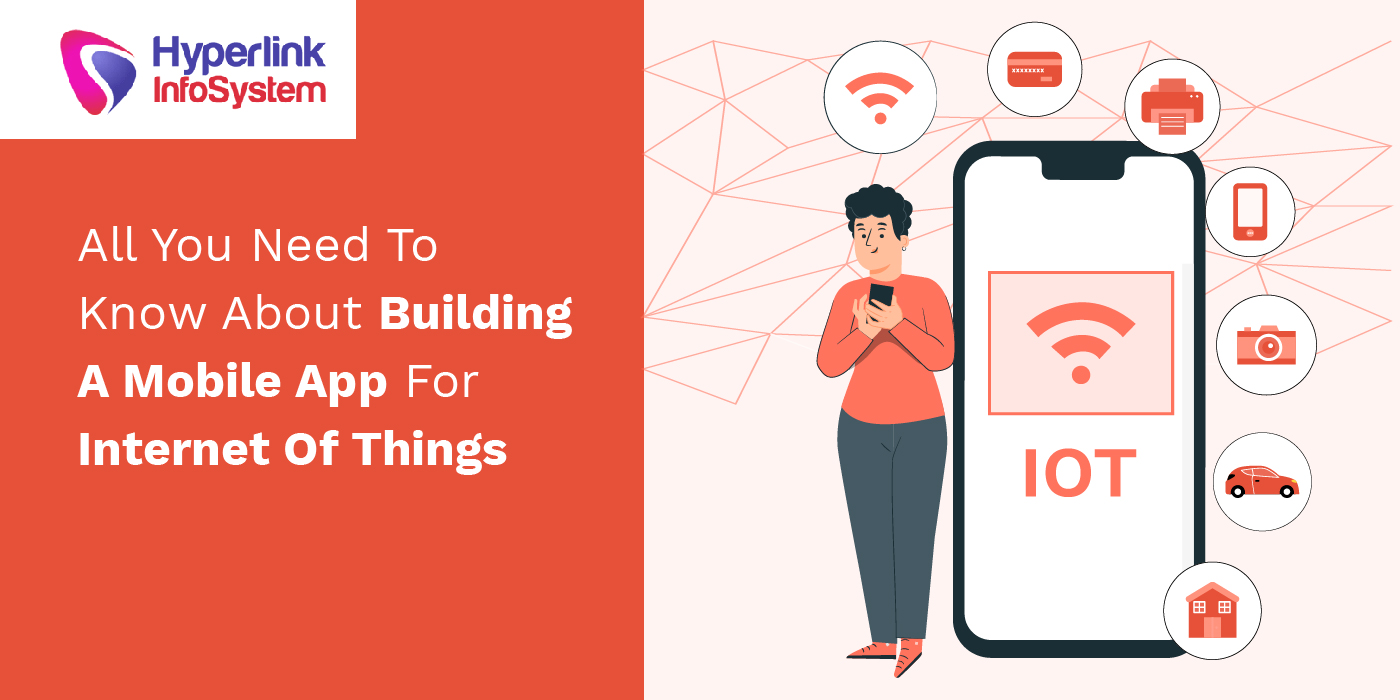

.jpg)
.jpg)
.jpg)

















